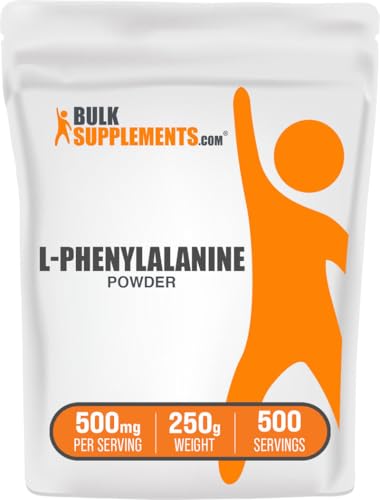L-Phenylalanine Disorder Lowers LDL Cholesterol - Study
Quick Summary: Research on adults with phenylketonuria (PKU), a disorder affecting L-Phenylalanine metabolism, found they had lower levels of "bad" LDL cholesterol compared to people without the condition. This study suggests the lower cholesterol isn't just from their special diet, but from the PKU itself.
What The Research Found
The study looked at adults with PKU and found something interesting about their cholesterol. People with PKU had lower levels of LDL cholesterol, the kind that's linked to heart problems. This was true for both men and women with the condition. The study also found that the amount of L-Phenylalanine in their blood didn't seem to affect their cholesterol levels. This suggests that the PKU itself, not just their diet, is what's lowering their cholesterol.
Study Details
- Who was studied: 41 adults with PKU.
- How long: This was a "snapshot" study, meaning they looked at people at one point in time.
- What they took: Nothing! This study looked at people with a natural condition, not at people taking L-Phenylalanine as a supplement.
What This Means For You
Important: This study is about people with PKU, a rare condition. It does not mean that taking L-Phenylalanine supplements will lower your cholesterol. If you have PKU, this study suggests that your lower cholesterol levels might be due to the condition itself. If you don't have PKU, this study doesn't apply to you.
Study Limitations
- The study only looked at a small number of people.
- Researchers didn't have detailed information about what the participants ate.
- Many people in the study were overweight or obese, which can affect cholesterol levels.
- The study only looked at people at one point in time, so it can't show cause and effect.
Technical Analysis Details
Key Findings
Adults with phenylketonuria (PKU) exhibited significantly lower LDL-cholesterol levels compared to age-matched community controls: 19% lower in females (2.5 vs. 3.1 mmol/L, p<0.001) and 32% lower in males (2.1 vs. 3.1 mmol/L, p<0.0001). Total cholesterol (4.3±0.8 mmol/L) and LDL-cholesterol (2.3±0.8 mmol/L) remained within low-normal ranges. Crucially, no correlation existed between blood phenylalanine (Phe) concentrations (mean 1194±522 μmol/L) and total cholesterol, LDL-cholesterol, or apolipoprotein B (p-values not significant). The study concludes that hypocholesterolaemia in PKU is likely driven by hyperphenylalaninaemia (HPA) itself—not the low-protein diet—suggesting disrupted cholesterol biosynthesis inherent to PKU.
Study Design
This cross-sectional cohort study analyzed 41 adults with PKU (26 female, 15 male; age 18–57 years, median 26) attending an outpatient clinic. Participants were stratified by dietary compliance: 33 (80%) adhered to a Phe-restricted diet with amino acid supplementation, while 8 (20%) did not. Cholesterol metrics (total, LDL, HDL, triglycerides, apoB) and blood Phe were measured concurrently. PKU group data were compared to large community reference populations (8,944 females, 3,786 males).
Dosage & Administration
Not applicable. This observational study examined endogenous phenylalanine metabolism in PKU patients. L-Phenylalanine was not administered as a supplement; blood Phe levels resulted from the metabolic disorder and dietary management.
Results & Efficacy
LDL-cholesterol was significantly reduced in PKU adults versus controls (females: 2.5±0.8 vs. 3.1±0.9 mmol/L, p<0.001; males: 2.1±0.7 vs. 3.1±1.0 mmol/L, p<0.0001). Total cholesterol averaged 4.3±0.8 mmol/L (within normal range: <5.2 mmol/L). Despite high obesity prevalence (72% of cohort had BMI ≥30 kg/m²), no linear relationship existed between blood Phe and any lipid parameter (r and p-values not reported for correlations, but explicitly stated as "no correlations observed").
Limitations
Small sample size (n=41) limits statistical power. Dietary adherence was self-reported without quantitative protein intake data, potentially confounding diet-cholesterol analysis. High obesity rates (72%) may mask or alter lipid associations. Cross-sectional design prevents causal inference. Reference populations were not contemporaneous or matched for BMI, introducing confounding bias. Future longitudinal studies with detailed dietary records are needed.
Clinical Relevance
This study does not support L-Phenylalanine supplementation for cholesterol management in the general population. Findings apply exclusively to PKU patients, indicating their inherent HPA—not dietary restrictions—causes hypocholesterolaemia. While lower LDL may imply cardioprotective potential in PKU, obesity prevalence in this cohort (72%) complicates cardiovascular risk assessment. Healthy individuals should not interpret this as evidence for using L-Phenylalanine to reduce cholesterol; PKU represents a unique metabolic context with lifelong dietary constraints. Further research must determine if hypocholesterolaemia translates to reduced cardiovascular events in PKU adults.
Original Study Reference
Plasma cholesterol in adults with phenylketonuria.
Source: PubMed
Published: 2015
📄 Read Full Study (PMID: 25551302)



